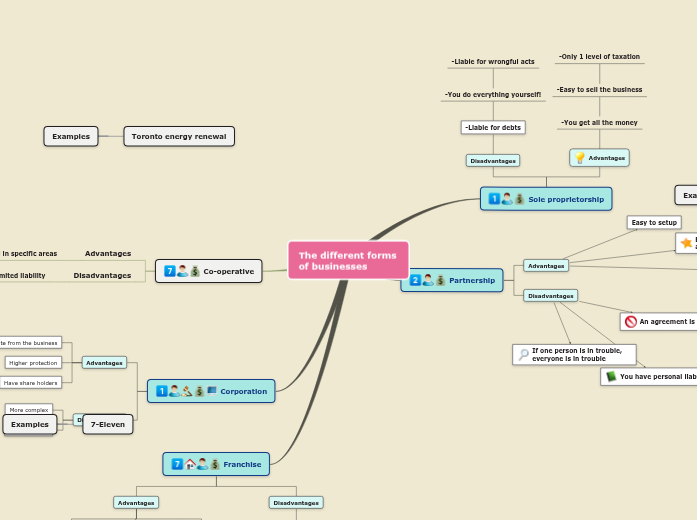por Chishty Alina 5 anos atrás
461
Types of Businesses and Forms of Business Ownership
Businesses can be structured in various forms, each with its unique advantages and disadvantages. Cooperatives are owned and managed by the consumers of their products, offering benefits like shared profits and easy ownership, but they may suffer from lack of participation and potential corruption.









